Navigating the challenges of university life can be overwhelming, and sometimes students find themselves on academic probation. This experience can feel daunting, but it's also an opportunity for growth and reflection. Writing an effective appeal letter is crucial in demonstrating your commitment to improving your academic performance. If you're looking for guidance on crafting a compelling appeal, stick around to discover invaluable tips and a helpful template!
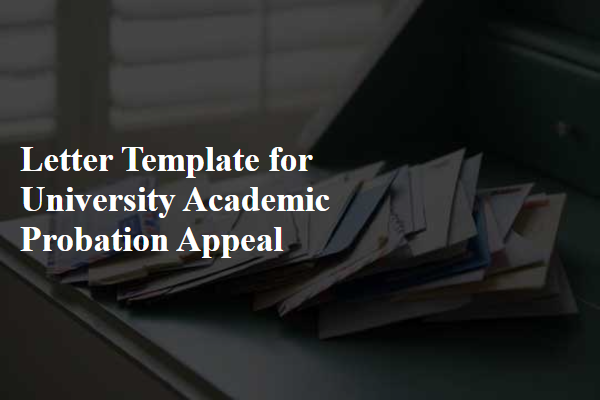
Personal Information and Contact Details
Submitting a university academic probation appeal requires precise presentation of personal information and contact details. Essential components include full name, student identification number, date of birth, and current enrollment status. Additionally, providing a permanent address, including street name, city, state, and zip code, ensures correct identification within university records. An active email address (with proper domain extensions) facilitates ongoing communication with university officials. Finally, a reachable phone number with the appropriate country code enables direct and efficient response regarding the appeal status. Properly formatted details emphasize professionalism and commitment to addressing the academic concerns at the institution.
Clear Explanation and Context of Circumstances
Academic probation can significantly impact a student's progression at institutions such as University of California or University of Michigan. Many students find themselves in this situation due to various challenges, including unforeseen medical issues, family crises, or financial difficulties. For instance, a severe illness requiring hospitalization, such as appendicitis, may drastically reduce a student's ability to attend classes and complete assignments. Additionally, emotional distress from situations like the death of a close family member could affect concentration and overall performance. It is crucial to communicate these extenuating circumstances to the academic committee, providing comprehensive documentation such as medical records or letters from counselors. This context allows for a clearer understanding of the mitigating factors leading to poor academic performance, demonstrating a commitment to improvement.
Demonstration of Responsibility and Acknowledgment
Demonstrating responsibility and acknowledging past academic challenges are crucial in an appeal for university academic probation. A student, previously enrolled at the University of California, Berkeley, can detail specific circumstances such as unexpected personal struggles, mental health issues, or family emergencies that impacted their academic performance, including a sudden decline in GPA from 3.5 to 2.0 over two semesters. The appeal must express a commitment to improvement through concrete steps, such as enrolling in academic coaching sessions or time management workshops. Highlighting support systems in place, such as counseling services offered by the university and mentoring from academic advisors, can further show a proactive approach. Providing a detailed plan for the upcoming semester, including a realistic course load and study schedule, reinforces the ability to meet academic expectations moving forward.
Plan for Academic Improvement and Support Strategies
An academic improvement plan is essential for students on probation at universities due to insufficient GPA scores or failing grades. This plan typically outlines specific strategies aimed at enhancing academic performance, such as attending tutoring sessions at campus learning centers or utilizing academic advising resources for course selection. Key elements often include setting measurable goals, such as achieving a minimum GPA of 3.0 over the next semester, and focusing on time management techniques, including using planners or digital calendars to meet deadlines. Regular self-assessments and reflection on academic progress can also be beneficial, encouraging the identification of obstacles and necessary adjustments. Engaging with faculty office hours can provide additional support and clarify complex material, essential for subjects like advanced calculus or organic chemistry. Participation in academic workshops offered by the university can also facilitate skill development in areas such as study habits and test-taking strategies. Individual and group study sessions within study groups can foster collaborative learning, contributing to a more supportive academic environment.
Closing Statement with Request for Reconsideration and Appreciation
Academic probation can significantly impact a student's educational journey, as it can lead to increased stress and uncertainty regarding future academic standing. In institutions such as the University of California (UC), this status typically occurs when a student fails to achieve a minimum GPA, often below 2.0. Students facing such circumstances may seek to appeal their probation status in hopes of reinstating good standing. This process usually requires a well-articulated closing statement, emphasizing the importance of reconsideration and expressing gratitude for the review of their appeal. Highlighting personal developments, proactive steps taken to improve academic performance, and a strong commitment to academic success can strengthen the appeal. Key elements can include references to specific programs available at the university to support struggling students and acknowledgment of the challenges faced during the academic term, which may have contributed to the decline in performance.
Letter Template For University Academic Probation Appeal Samples
Letter template of request for reconsideration of academic probation at university
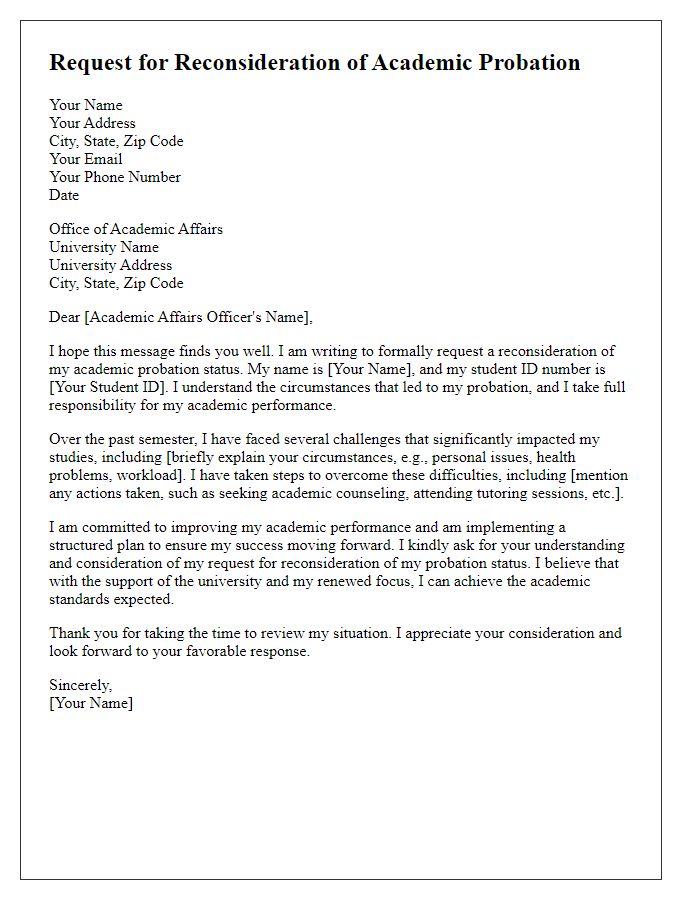
Letter template of request to review academic probation status at university
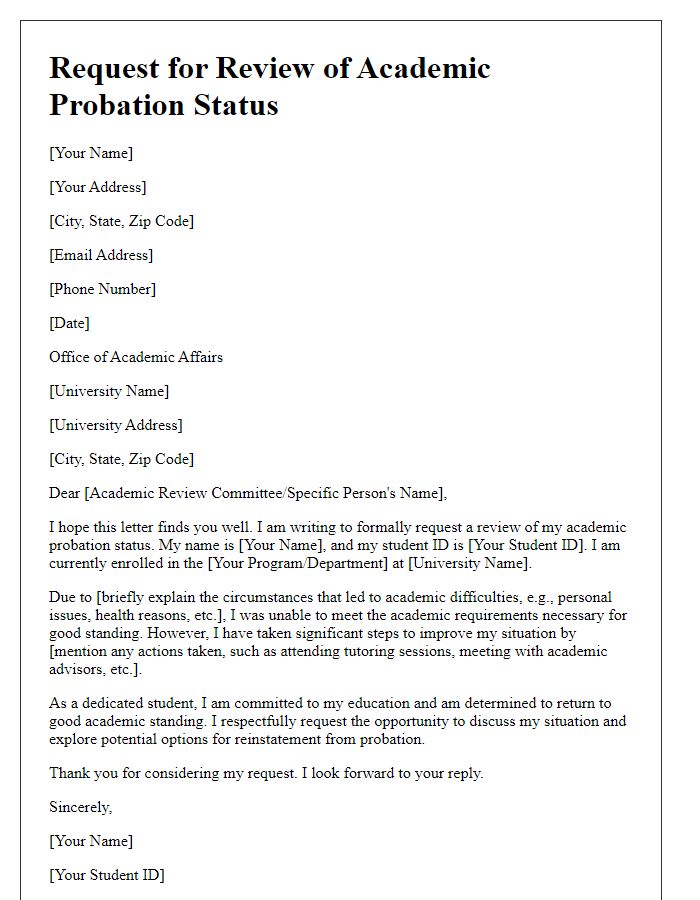
Letter template of justification for appeal against academic probation notice
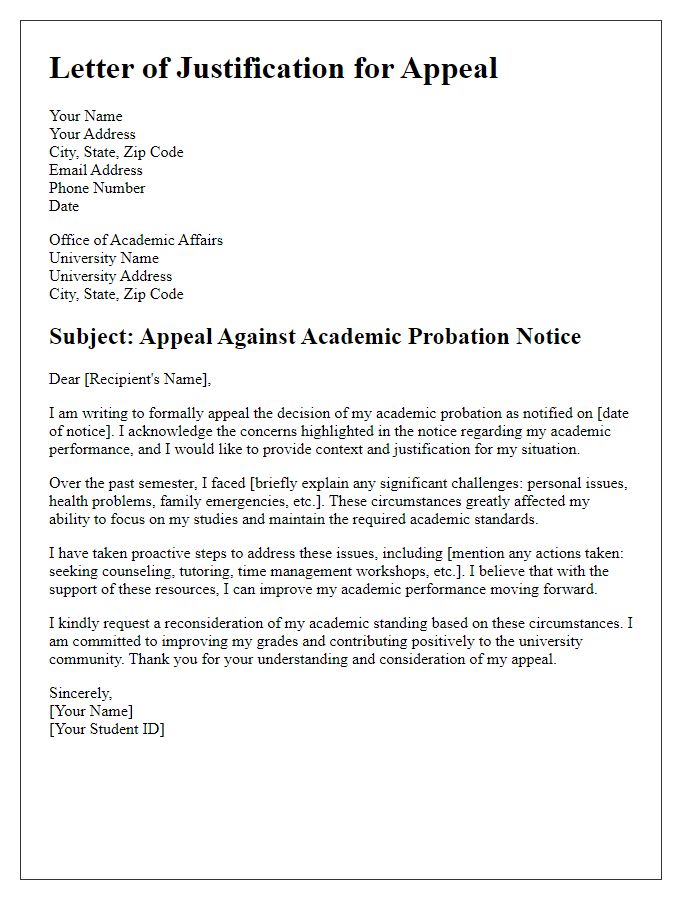
Letter template of explanation for academic performance and probation appeal
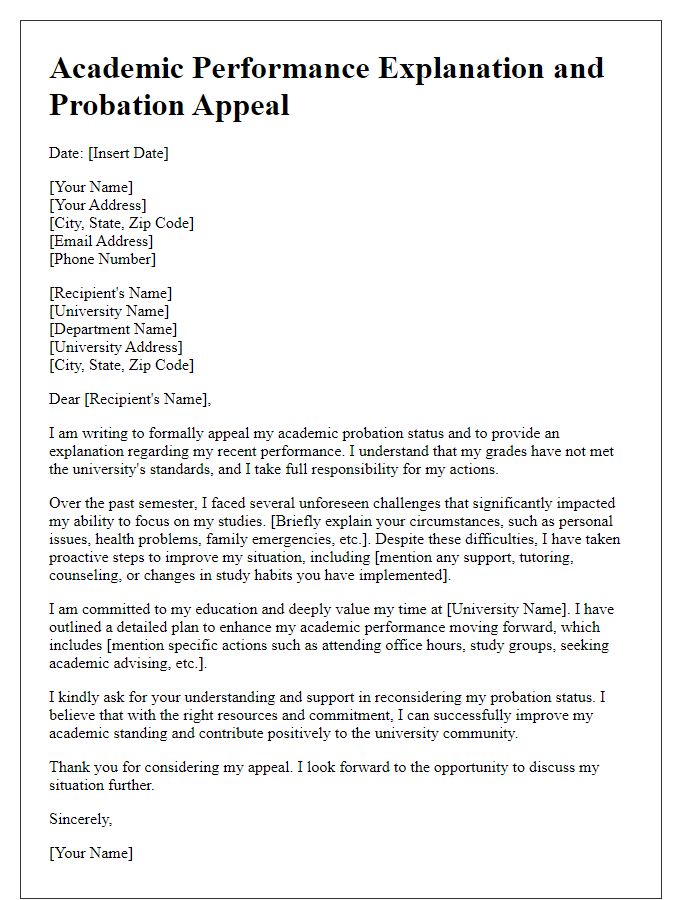

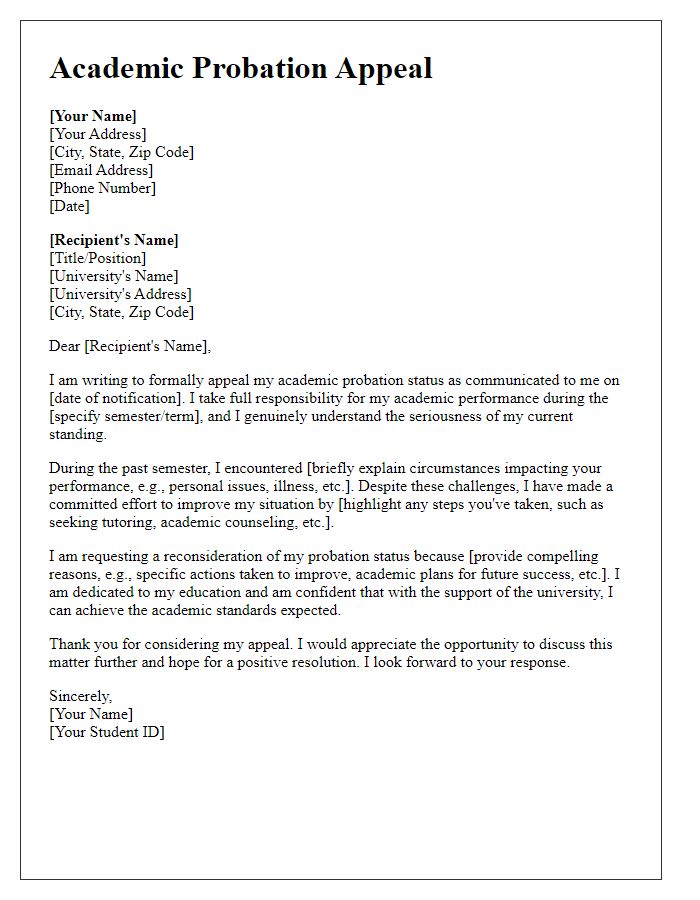
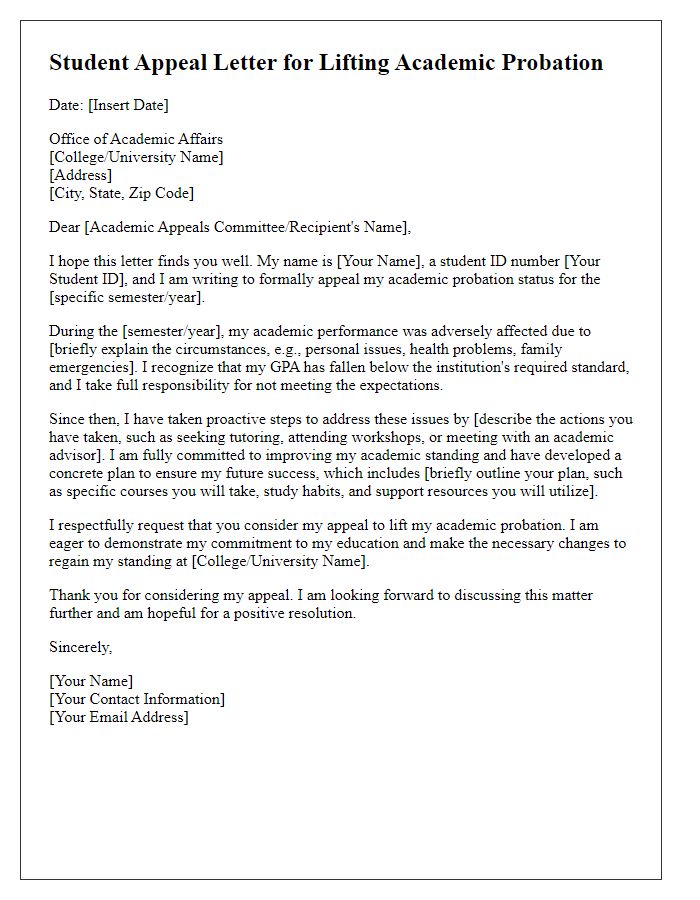
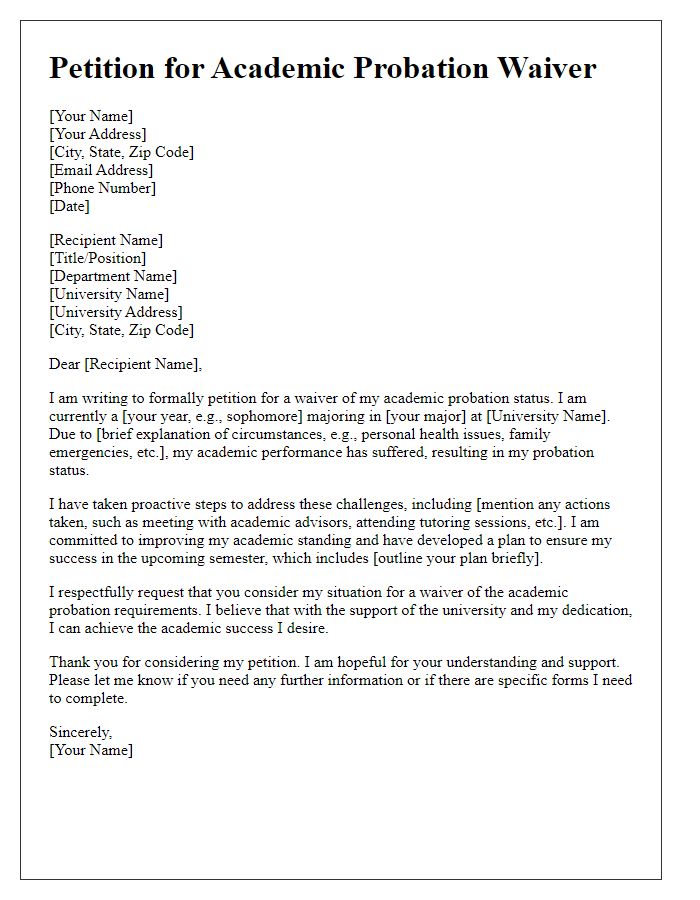
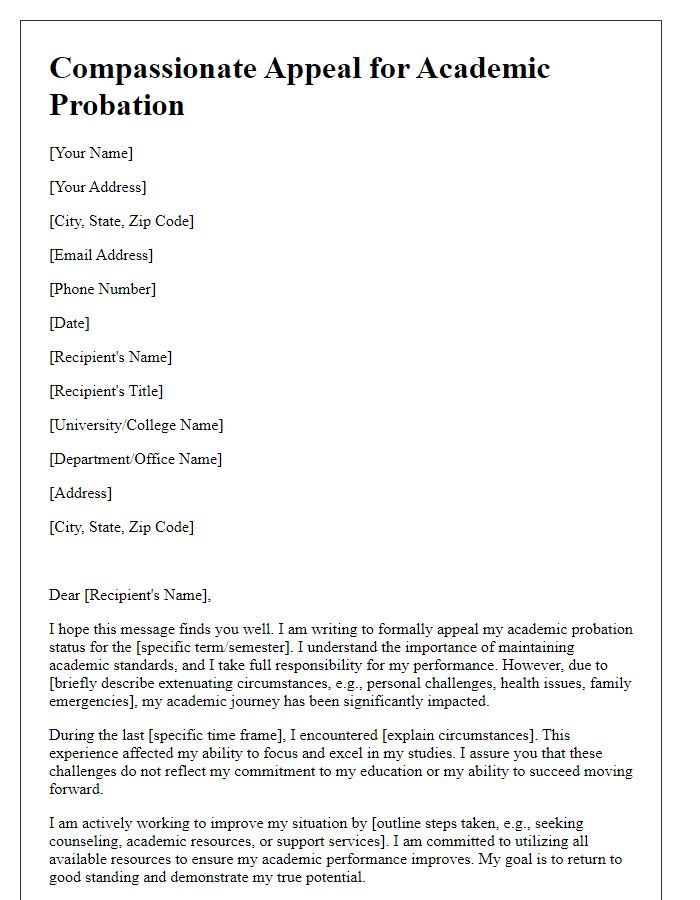
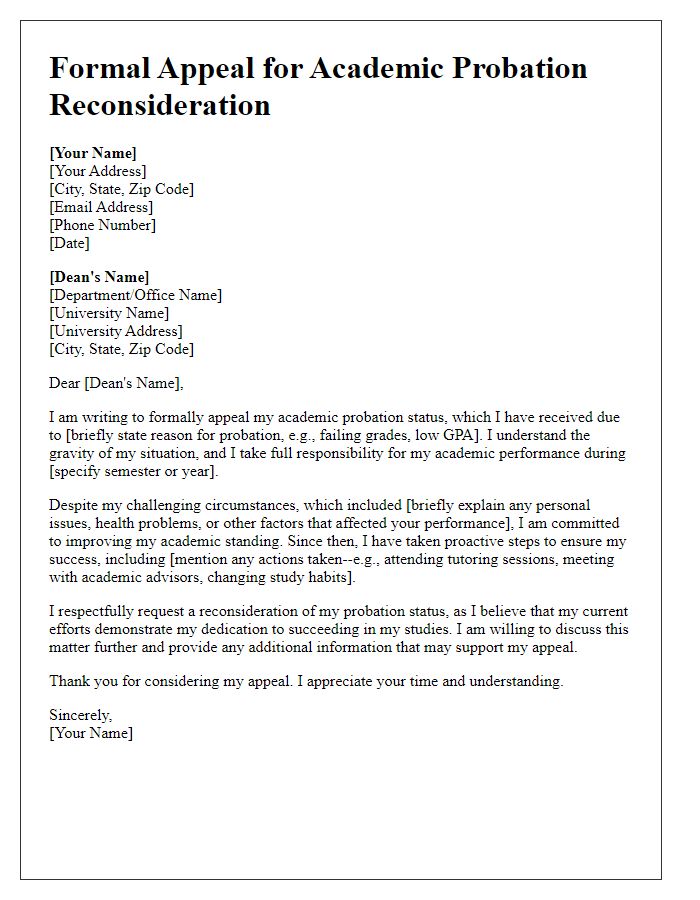
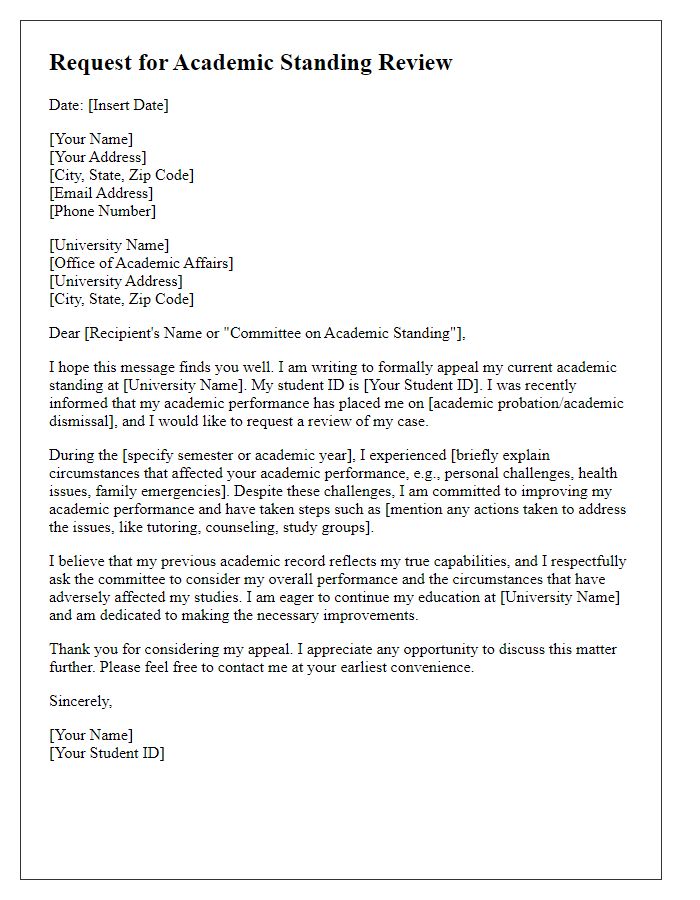


Comments